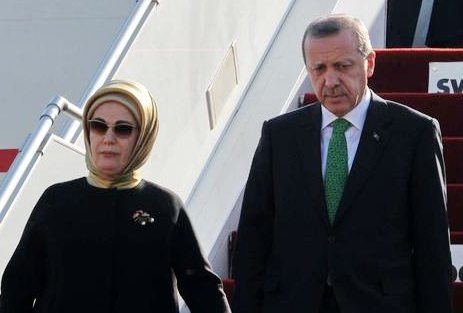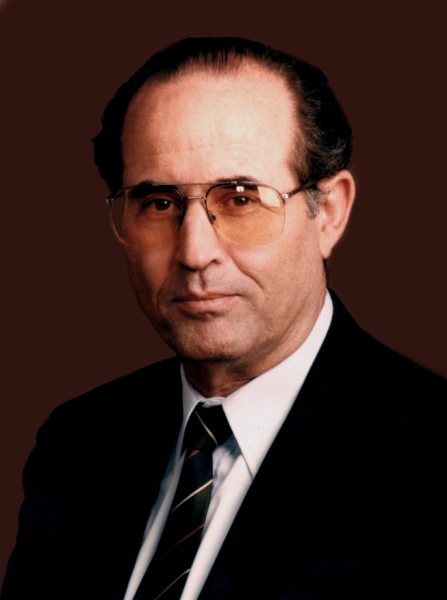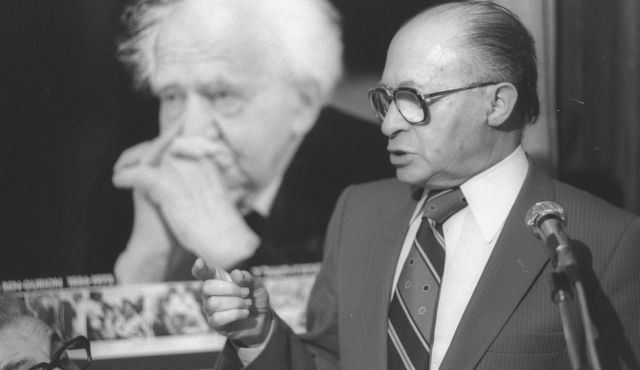By Jean Christou
President Nicos Anastasiades on Tuesday met political party leaders ahead of his meeting later with UN Special Adviser Espen Barth Eide where he is due to give an official response for the Greek Cypriot side’s rejection of a proposal for a twin-track process to resolve the hydrocarbons dispute.
After the meeting at the presidential palace, Government Spokesman Nicos Christodoulides said there had been a good exchange of views with the party leaders on the argument the Greek Cypriot side would be putting to Eide.
The content of this position would remain a private matter between the President, his aides and the UN Special Adviser during their meeting later, the spokesman said. Anastasiades is due to meet Eide at 6.30pm.
“Mr Eide will be briefed through this meeting and not in public,” Christodoulides said.
What he could say, was that the position of the Greek Cypriot side had not changed and was unanimous. “The issue of hydrocarbons can in no way be discussed either at the [negotiating table] table nor during any other parallel process,” said the spokesman.
“It is very important that the party leaders firmly agree on this position.”
The spokesman said the issue of energy was an important incentive both to the Turkish Cypriots and to Turkey to solve the Cyprus problem as soon as possible. “Any other discussion or idea for discussion serves as a vehicle for failure to resolve the Cyprus problem,” Christodoulides said.
“It was Turkey by its actions, which have escalated the situation, that led us to the decision to suspend our participation in the negotiations, so any action or efforts [to defuse the situation] should be directed there.”
In early October, Turkey announced plans to carry out surveys within Cyprus’ exclusive economic zone (EEZ) and sent in the seismic vessel Barbaros on October 20 with plans to carry out exploration until December 30. This prompted Anastasiades to withdraw from the talks. The Greek Cypriots will not contemplate returning to the talks until the Barbaros has left the EEZ, it has said.
Eide has been trying to defuse the situation recently suggesting a twin-track process where hydrocarbons would be discussed in parallel to the settlement talks. This has been rejected by both sides. The Special Adviser arrived back on the island on Monday for a week of meetings with leaders, the chief negotiators, other political figures, ambassadors and academics.
The UN said earlier in the week, Eide was expecting an official response to the rejection of his proposal.
CYPRUS MAIL
26.11.2014
Turkish Cyprus says equal rights to resources ‘our red line’
Küfi Seydali
Comment by Fevzi Ogelman (1) and John Mavro (2)
(1) – Fevzi Ogelman
The history of Cyprus is littered with Greek Cypriot mistakes that gave them grief every time. After losing a third of the island and making a huge proportion of their people refugees in ’74, they’re at it again. This time, encouraged by the ‘recognition’ afforded to them by the international community, they think they can exploit the riches under the sea exclusively when the UN, US, EU and others are saying that both communities must benefit. When will they realise that it won’t work?
(2) – John Mavro
The headline of this article above, ” Greek Cypriot side remains firm” is incorrect.
It should read: ”As anticipated, the Greek Cypriot side remains firm in its perennial, infinite stupidity”.
How else can any sensible individual, interpret the following gems from the genius who doubles up as ” government spokesman”:
– “The issue of hydrocarbons can in no way be discussed either at the [negotiating table] table nor during any other parallel process,” said the spokesman.
So when does this extension of the useless, gutless president propose that the issue of the hydrocarbons be discussed? If not at the negotiating table?
Since these hydrocarbons were first found, have we not heard from ALL these corrupt ”politicians”, without exception and including the super patriots such as Omirou, Papdopoulos Junior, Lillikas etc, that these could be the catalyst required to reach a settlement on the long suffering Cyprus ”problem”? Is this not the right opportunity to use our (very small) trump card?
Or is the ”government spokesman” avoiding this issue for the sole purpose of delaying and driving these latest talks to a dead end? So that his boss may enjoy more F1 grand prixs until 2018, and maybe beyond? What other reason can there be to the out of hand rejection of Mr Eide’s very sensible proposals?
– “It is very important that the party leaders firmly agree on this position.”
Really?
Since when is it important for these career super patriots, the rejectionists and the partitionists making up less than 30% of the popular vote to AGREE on any position of the Cyprus ”problem”? Since we all know that that their entire, miserable ”careers” have been built on maintaining the Cyprus ”problem” very much a problem without the prospect of any solution?
-“Any other discussion or idea for discussion serves as a vehicle for failure to resolve the Cyprus problem,” Christodoulides said.
Note the irrationality of the Christodoulides’ ”logic” here. That any other idea, suggestion or proposal which falls outside the thinking of these idiots, can only serve as ”vehicle for failure”! After all, all these corrupt, unintelligent peasants who have led us from catastrophe to catastrophe, since 1960, are also infallible. They know best. And more than the rest of the world – including the UN, the US, the EU and just about everyone else.
The above statements by this pompous propagandist merely confirms why this place has been utterly destroyed by ”leaders” such as his boss.
Unintelligent, in some cases uneducated, peasants who believe that this place is their personal fiefdom. To plunder at will for self enrichment.
Individuals with no vision, nor ability, nor statesmanship to look ahead and visualize a modern country without political problems. Without any more ”freedom fighters” ,”liberators” and super patriots who have reigned supreme here since 1955. With the well known disastrous results.
Anastasiades should actually do some self critique. And realize he has painted himself into a corner. As well as being hijacked by the super patriots, the rejectionists and the partitionists.
He should ditch these cancers and return to the negotiating table. Accept Mr Eide’s sensible suggestions and place the hydrocarbons firmly on the agenda.
It is the only chance of reaching an acceptable win-win solution. And to extract the hydrocarbons for the benefit of the whole island.








